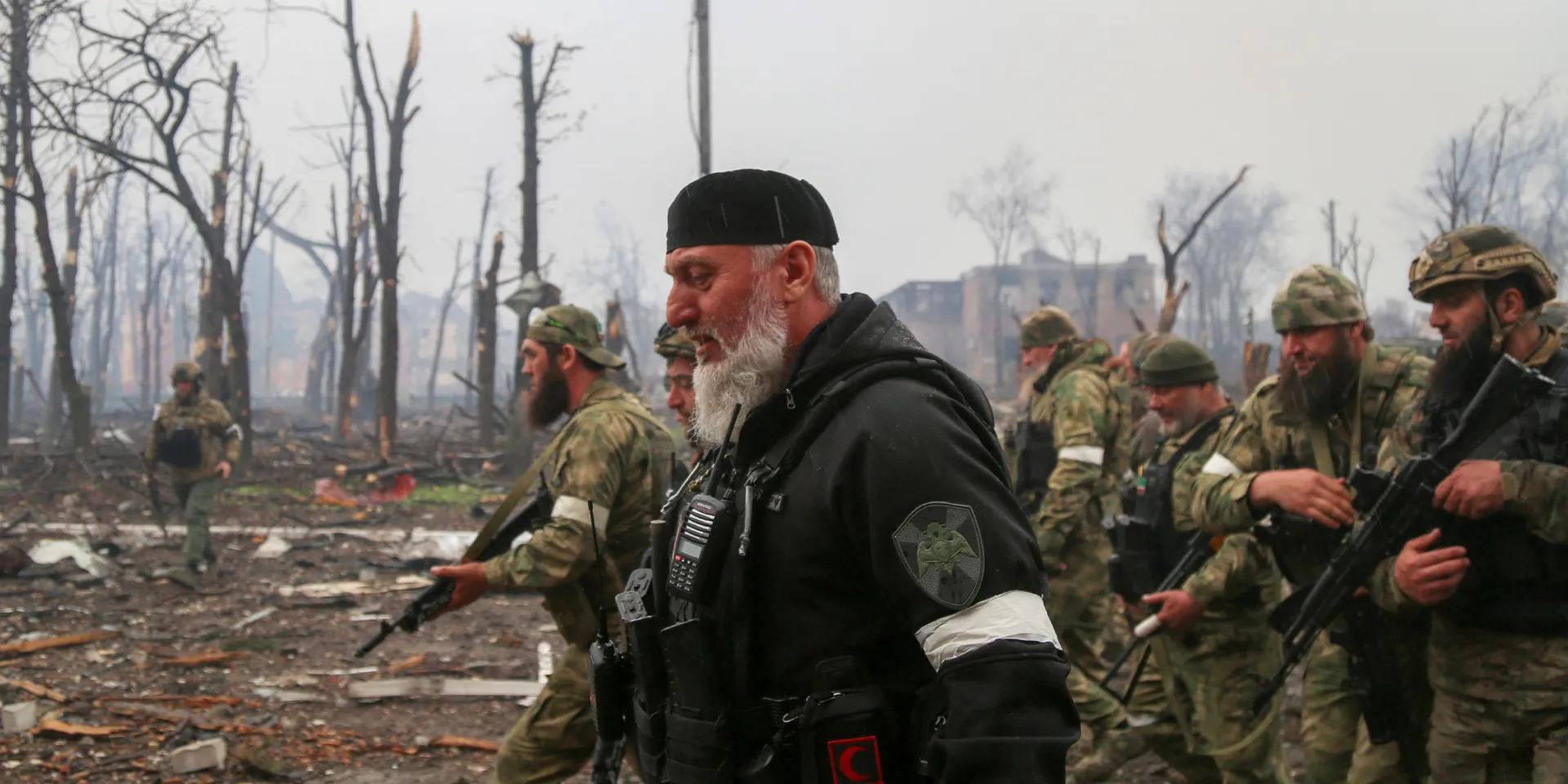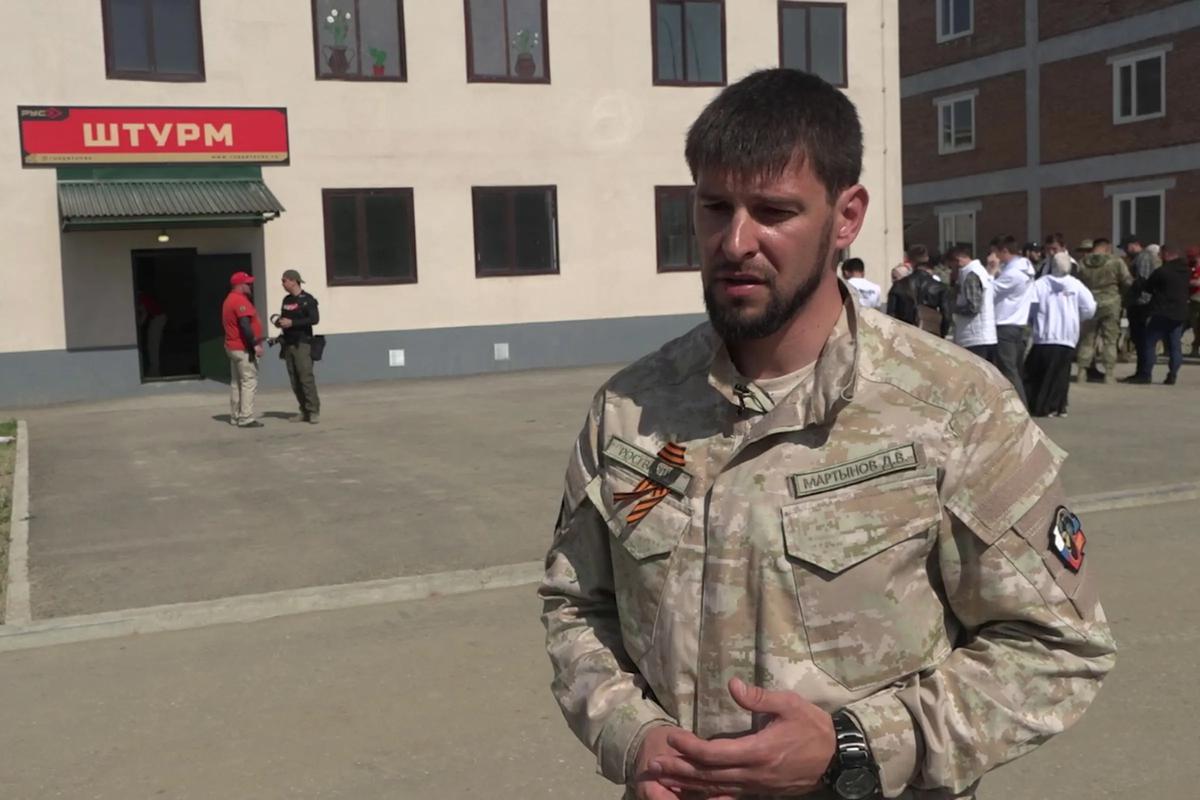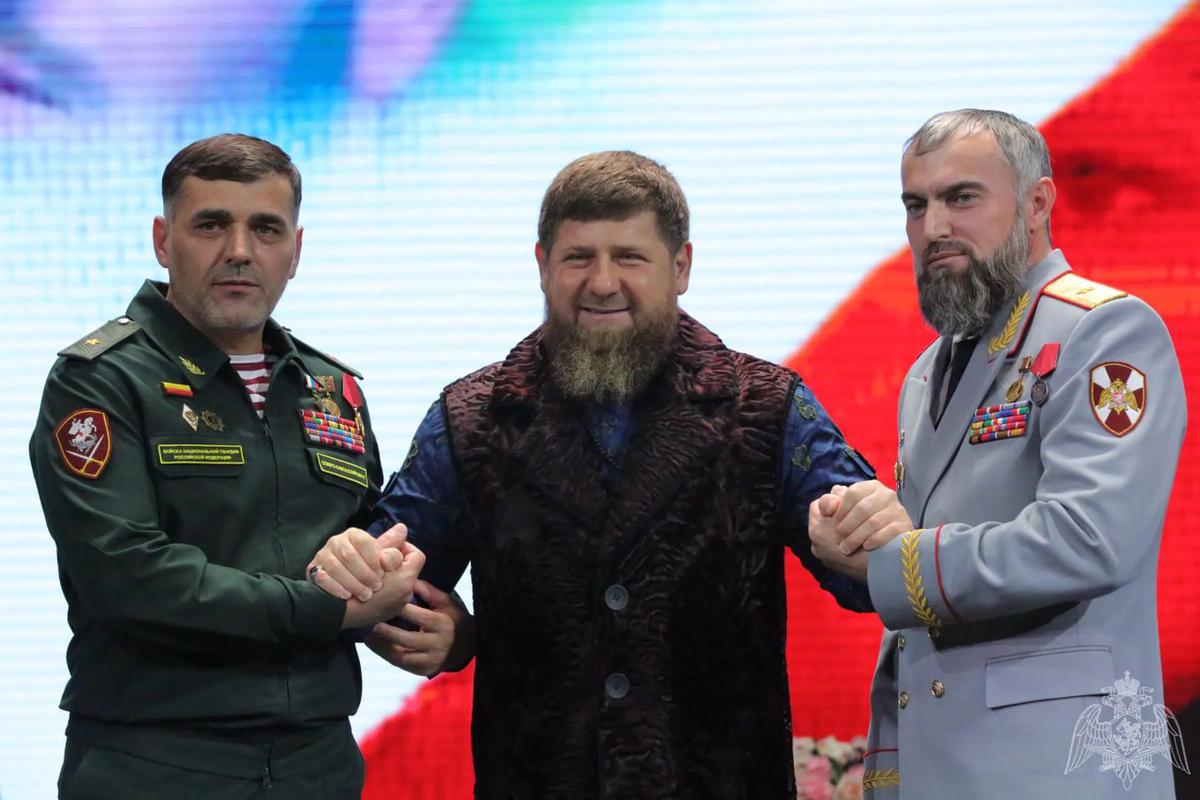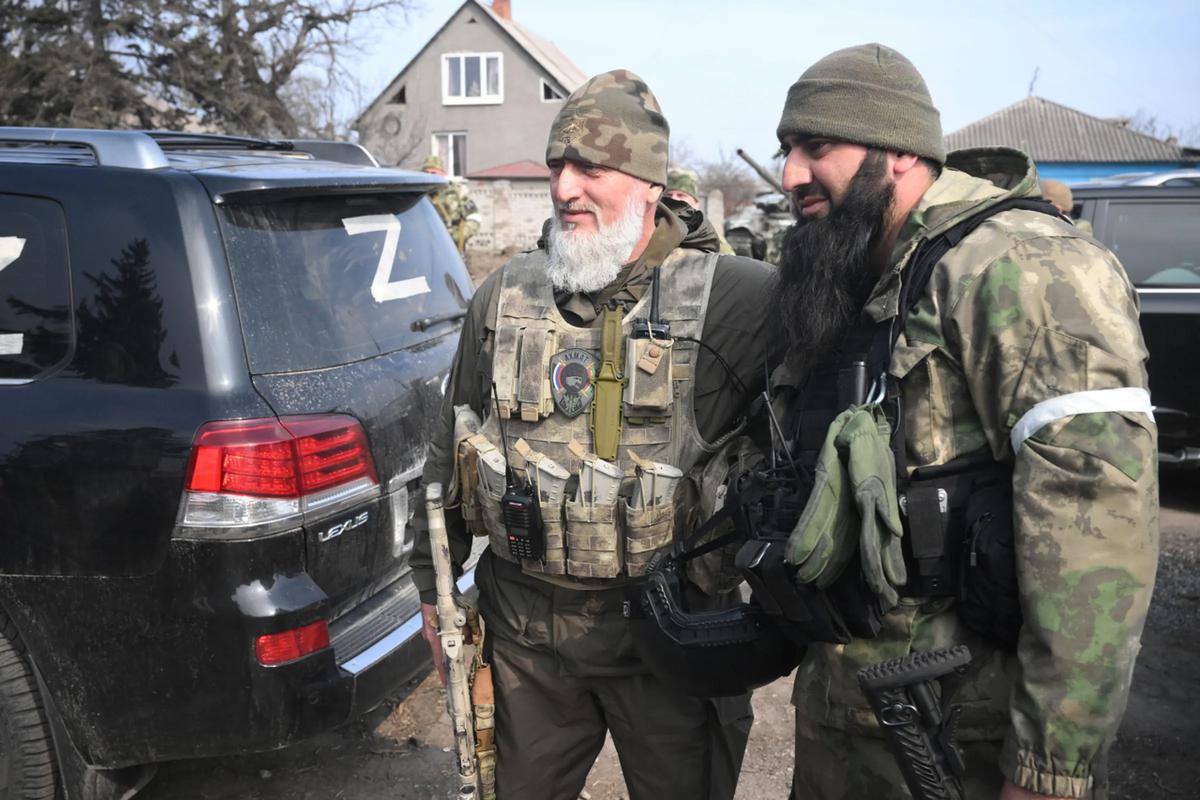
On April 26, the Russian president signed a decree awarding Chechen State Duma deputy Adam Delimkhanov the title of Hero of the Russian Federation for "courage and heroism shown during a special operation on the territories of the Donetsk People's Republic, the Luhansk People's Republic (DNR and LNR) and Ukraine". Delimkhanov became the first civilian to be awarded the title of Hero of Russia by an open decree during the Russia-Ukraine war. Before this, only servicemen of the Russian Ministry of Defense and one officer of the National Guard of the Russian Federation (Rosgvardiya) received this award.
Nothing is known about Delimkhanov's military exploits in Ukraine, except for 'heroic' videos. According to his public biography, Delimkhanov was in the army from 1987 to 1989, when he did his compulsory military service. From 2000 to 2006 he served in the police: for the first three years he worked in the security service of the Chechen President Akhmad Kadyrov, and then for another three years he headed the extra-departmental security regiment overseeing the security of the Chechen republic's oil facilities.
In 2007 Delimkhanov replaced Chechen MP Ruslan Yamadayev in the State Duma. Yamadayev was later killed in the center of Moscow. Russian investigators had reasons to suspect that Delimkhanov may have been involved in a crime, but the investigation of those who ordered and organized the killing has been suspended. Since then Delimkhanov has been listed as a deputy from Chechnya, but apparently, he rarely pays visits to State Duma.
Between two generals
Information that Delimkhanov takes part in Russia's invasion of Ukraine appeared on March 14 on Chechen President Ramzan Kadyrov's Telegram channel. This was preceded by several conflicts in Chechen units of the Rosgvardiya.
These units were formed on the basis of the Chechen OMON riot police, the 141st Regiment, known as the Battalion North, and the 249th Battalion, known as the Battalion South. They were transferred to the Belarusian-Ukrainian border a few weeks before the war began. Six members of the Chechen OMON riot police, one member of battalion South, and relatives of four members of battalion North told IStories about the participation of said units in this operation.
Daniil Martynov, a former special forces soldier of Alpha Group, an aide to Ramzan Kadyrov in the security wing, and first deputy head of the Rosgvardiya department in Chechnya, was appointed coordinator of the Chechen guards in Ukraine. This information was provided by sources within the Chechen Republic's Federal Security Service (FSB) and the Rosgvardiya personnel who took part in the "special military operation."
According to a source in the FSB, the appointment of Martynov led to a conflict because two higher-ranking commanders of the Rosgvardiya, both generals and both brothers of Delimkhanov, found themselves under his command: Alibek Delimkhanov, first deputy commander of the North Caucasus District of the National Guard, and Sharip Delimkhanov, head of the Federal Guard Service of the Chechen Republic. For them, Martynov was not an authority, and they considered it humiliating to be under his chain of command.


Soldiers of the Chechen OMON squadron recounted the argument between Martynov and the Chechen OMON commander Anzor Bisaev. This argument was related to the shooting of a Russian paratrooper convoy moving towards Kyiv at the end of February. There were Chechen units in that convoy as well. During the attack, the Chechen units lost contact with Martynov, were disoriented, and left the battleground. Later, when arguments between Martynov and Bisaev led to physical confrontations, a recording of a conversation between Bisaev and Abuzaid Vismuradov, the Chechen Deputy Prime Minister for the security bloc and commander of the SOBR Terek, was "leaked" to the Internet. In this recording, Chechen security officers discuss Martynov's actions in an insulting manner (the correctness of the translation made by the administrators of the Adat Telegram channel was confirmed to IStories by ethnic Chechens).
General retreat
We can assume that as early as the beginning of March, the General Staff of the Russian Ministry of Defense understood that the advance in the Kyiv direction had failed, and the Russian troops began preparing for a retreat. According to Radio Free Europe/Radio Liberty, which referred to sources in the Security Service of Ukraine, in the first ten days of March, a decision was made to transfer the units, in which Chechen residents were fighting, near Mariupol.
According to several sources in the inner circle of the head of Chechnya and the republic's law enforcement agencies, the decision to transfer the units upset Ramzan Kadyrov, who had stated before the war that "Kyiv must be seized" (he said that during the war, too). He considered fighting for control of the south of Ukraine a far less prestigious task, not worth risking his men. Kadyrov went into conflict with the leadership of the Rosgvardiya and the Ministry of Defense and ordered his fighters to return home to "rest." By mid-March, at least some of the Chechen units of the Rosgvardiya had returned to the republic. IStories has been able to confirm this with numerous sources, including members of the units.
On March 13 a video recording of a meeting between Kadyrov and commanders of Chechen units, including Martynov, appeared on Telegram (Kadyrov referred to this recording). It was shot in a basement of some building, allegedly not far from Kyiv. However, Kadyrov's critics considered it to be a staged video. Indirect evidence was published by Ukrainian journalists, who learned the phone numbers Kadyrov uses and checked them to see if they were connected to Ukrainian roaming services on March 13. The legend of Kadyrov's forced march to Ukraine was not supported by President Vladimir Putin's press secretary Dmitry Peskov either. A source in the Federal Security Service of the Chechen Republic distinctly said that Kadyrov had not entered Ukraine at that time.
Like all Russian citizens, Kadyrov was held hostage by the Russian president's disastrous decision to go to war with Ukraine. He had to incorporate his army into this "special operation" attempting to run with the hare and hunt with the hounds. That is, on the one hand, no one should have had any doubts that the head of Chechnya fully supports the Russian president. However, Kadyrov was not prepared to sacrifice his security forces. Only one person in Kadyrov's inner circle, Adam Delimkhanov, could resolve such a conflict, the more so because the disgruntled generals were his brothers.
Special service crime boss
Adam Delimkhanov is a talented heir to the Chechen crime bosses. The former KGB officer Alexander Litvinenko and dissident Vladimir Malsagov claimed those crime bosses were nurtured by KGB handlers at the end of the Soviet regime as a force to keep Slavic organized crime groups in check. As Khozh-Ahmed Nukhaev, Khoza Suleimanov, and Movladi Atlangeriyev (the leaders of the famous Lazanskaya organized criminal group in the 1990s) did in their time, Delimkhanov bet on the Chechen communities, scattered throughout the country and the world. It was Delimkhanov who was authorized by Kadyrov to control the Chechen diasporas and at the same time to exploit and develop their criminal and economic potential.
But unlike the Lazanskaya group, the Chechen authorities and security services have at their disposal state institutions such as the judicial and police systems, and most importantly, immunity from prosecution. As a result, the geographical scope of Delimkhanov's influence is enormous. His informal ties extend to all regions of Russia, the former Soviet Union, especially Ukraine and Central Asia, and, to a lesser extent, Europe and the Middle East. In 2014, the U.S. included Delimkhanov in the sanctions lists as an international criminal.
Enemy of Ukraine
On March 14, a video of Delimkhanov in Ukraine appeared on Kadyrov's Telegram channel. In the background of the video, there was a sign of the settlement "Bezimenne". There really is such a village in the Novoazovsk district of the Donetsk region. An official at the Ministry of Emergency Situations of the Russian Federation (EMERCOM) in the Chechen Republic told IStories that a large delegation from Chechnya, headed by Delimkhanov, arrived in Taganrog on March 13. Taganrog became the base for transporting Chechen military personnel, volunteers, doctors, EMERCOM personnel, and humanitarian aid to the territory of the Donetsk and Luhansk republics.
Delimkhanov structured his work along several lines: establishing contacts with the commanders of the LNR and DNR, ensuring the flow of volunteers (and not only Chechen residents), providing logistics, especially for Chechen units, and providing the head of Chechnya with the information he needed.
Volunteers in Chechnya are attracted by the increased pay, which is handed out to them up front. Several families of fallen Chechens confirmed this fact to IStories.

The LNR and DNR commanders, critical of the Chechen security forces, were pacified rather quickly, in the manner typical of Kadyrov. After a conversation with Delimkhanov, Alexander Khodakovsky, a former special forces soldier and a very popular military and political figure in the DNR, who had referred to the Chechens on his Telegram as "a hodgepodge", retracted his words. Since then he has stopped mentioning the Kadyrovites in vain. Similar work was carried out with Alexander Sladkov, a war correspondent for the All-Russian State Television and Radio Broadcasting Company (VGTRK). He accused Kadyrov of taking credit for the exploits of others. According to Kadyrov, Chechens allegedly took part in the capture of Ukrainian Marines near Mariupol. Sladkov later deleted the critical Telegram post, explaining that it wasn't the time to go over some important nuances.
Together with Delimkhanov, Chechen Information Minister Akhmed Dudayev is active in the DNR and LNR, organizing press tours to the war zone. Russian journalists and bloggers as well as foreign ones can take part in these tours. The Chechen fighters, unlike the Russian military, the Rosgvardiya, and the separatists of the DPR and the LPR, willingly communicate with the press. As a result, the Chechen authorities managed to get good coverage of their participation in the Russia-Ukraine war.
The head of Chechnya has also almost stopped publishing news about the regional agenda which used to be important for him. He has turned his Telegram and Instagram into a battle bulletin, where he advertises the successes of Chechen fighters (and they — obviously following an order — supply him with content). Kadyrov demonstrates that he has outgrown the level of the head of the region and regularly gives advice to President Putin and directly addresses world leaders — the heads of Ukraine, the United States, France, Turkey, and other countries.
Officially, there are 13 Chechens known to have died in Ukraine, which is one of the lowest figures for Russian regions. But according to a source in the Chechen Ministry of Health, the casualties among Chechens taking part in the hostilities are comparable to those of Dagestani fighters. There are 123 confirmed deaths of Dagestani servicemen and members of the Rosgvardiya. For Chechnya, with a population two to three times smaller than in Dagestan, this is a huge figure.
Chechen bloggers, particularly the Adat Telegram channel, and Khasan Khalitov track the deaths of Chechen residents. They monitor social networks and messengers, where relatives and friends post pictures of the dead, usually taken before they were sent to Ukraine or already in Ukraine, with an appeal to make dua (prayers) for the deceased. Many of the dead were volunteers who were not members of the Chechen security forces.
A source of Important Stories, who is involved in transporting home the Chechen killed in Ukraine, says that every day the Chechen units suffer casualties, both killed and wounded.